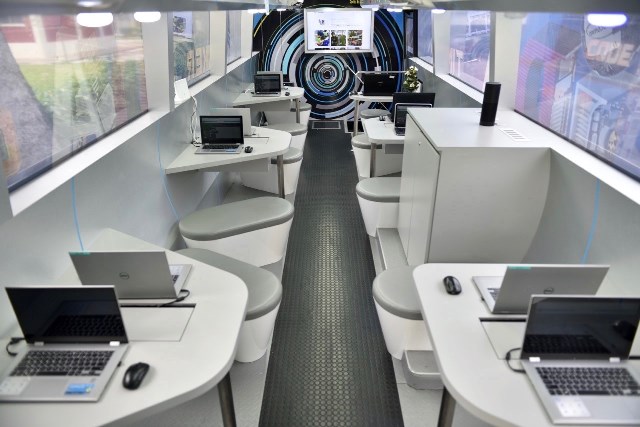When I look at the students in my Principles of Accounts (POA) class, I do not see them as future accountants.
This is because the knowledge and skills they learn in POA are in demand in a variety of professions. With their POA background, my students can aspire to many exciting opportunities in finance, private enterprise and even the civil service. Accounting is just one of the options.
Let me explain why POA is such a valuable skill at the workplace and in everyday life.
Accounting – the Language of Business
Accounting is essentially a system to record business transactions and provide information for different groups of people to make informed decisions.
These decisions go on every day and affect everyone.
In the world of business, there are decisions that the knowledge of accounting helps you to make. For example, businesses have to decide if they need to purchase more equipment; banks need to assess if they should lend money to a business. A person with a background in POA will bring the necessary financial awareness, skills and knowledge to help make these decisions.
Knowing the language of business also helps students understand how businesses measure and communicate their performance. They will learn how businesses manage their resources to better reach their goals.
Naturally, they become more discerning consumers too.
You may have come across weekly promotions at the supermarket prompting you to buy more of certain products or incentives for cashless payment systems that led us to use less cash when we pay. All these are decisions carefully made by consumers and businesses to achieve their objectives. That is POA at work!
Not just Bean Counters
As mentioned, not all students who study POA will eventually become accountants or entrepreneurs. But POA teaches many other skills that will come in handy even though you are not an accountant.
POA is more than simply numbers and accounting concepts. Through the process of sharpening their accounting knowledge, students also pick up important values and skills that employers in many fields look out for. These include critical thinking, an eye for detail, accuracy in analysing data, and professional ethics in reporting information.
All POA students are trained to prepare detailed financial statements that accurately and clearly present business transactions and activities. They are used to looking at complex data, sifting through data to determine what is essential, and analysing them to find trends and patterns. They become meticulous because every mistake must be painstakingly retraced and corrected for the accounts to be closed.
Countless Opportunities
POA naturally creates interest and raises awareness of future pathways in accounting or inspires students to start their own business if they so desire. However, there are many other lesser-known professional roles a person with accounting background can perform in both the public and private sector. For example, financial forensics professionals conduct fraud investigations and provide litigation support for banks and government agencies – imagine them as the detectives of the financial world!
Another exciting opportunity is in enterprise risk management. Businesses need professionals who can identify risks in their operations and advise on strategies to manage risk.
Accounting is an important part of every business. When my students pursue accounting as a career, I know they can choose from a whole range of exciting job opportunities. So long as there are businesses in the world, accountants will always be needed.
Experience in School
In school, I have observed the way POA sharpens people’s analytical skills.
Once, the school organised a fund-raising project for which each class had to come up with a business plan and run a mini business where the profits earned would be donated to charity.
Unlike some of their peers who set high selling prices without accounting for the costs incurred, my POA students were able to propose a profitable business plan and ‘work backwards’ to determine what the selling price of different products should be.
They were also able to come up with a system to ensure money for the project was properly accounted for. They kept detailed notebooks to track the inflow and outflow of funds, categorised the costs incurred and kept the receipts of items purchased – which made it easy for them to reimburse their classmates later. I was impressed by their initiative! They had put good practices to use and experienced the benefit.
Even though my POA class did not earn the highest profit in the school, they were able to reflect and analyse the process and outcome using the accounting knowledge they have acquired. They shared with me that the items they chose to sell cost more than that of their competitors. This led to a higher selling price, which made the objects less desirable to their schoolmates.
This was a very encouraging moment for me as I could tell that my students were demonstrating what they had learnt – that recording transactions is not the end point for accounting. They were interpreting the recorded information to evaluate their business performance and provide suitable recommendations for improvement!
Is POA for your child?
Having taught POA for four years, I believe that every child can do well in POA.
Some schools may require students to do relatively well for Mathematics in order to take POA. POA does involve the use of simple formulae and execution of basic math operations i.e. add, subtract, times and divide. But that is all the Mathematics you need!
How about other qualities needed for a student to take POA? Here is a piece of good news – POA is suitable for all students and there is no specific quality that will make you a better fit as a POA student. In fact, let learning POA develop the right qualities in you.
Many of my ex-students appreciated how POA helped them to understand the world we live in and feel better prepared to make financial decisions for themselves as they graduate from secondary school.
If nothing else, they can better manage their own allowance!
For more information about the future career pathways related to POA, check out the SkillsFuture website.






.jpg)